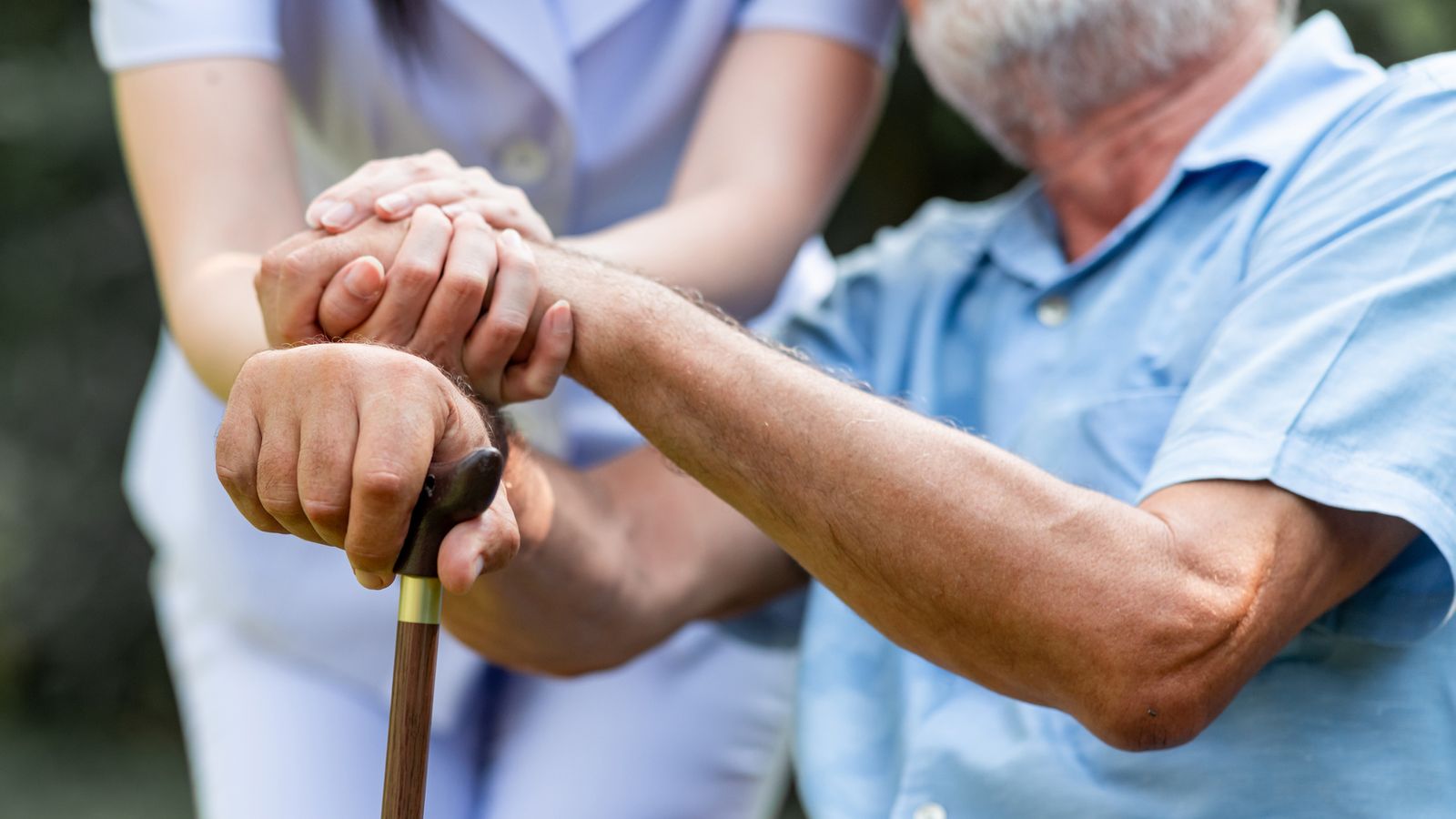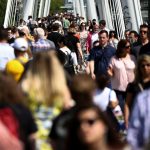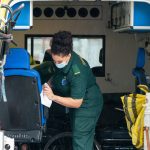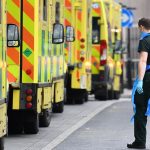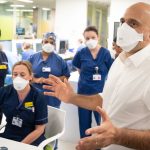People who are at high risk of catching the coronavirus have called the ending of restrictions in England “really frightening” and urged the government to give “more thought” to the vulnerable community.
Restrictions such as limits on gatherings and social distancing, as well as face coverings, will no longer be legal requirements, although masks in certain spaces – including supermarkets and on public transport – is still being encouraged.
There are around 3.8 million clinically vulnerable people in England with many saying they will do what they can to keep themselves and others safe – while charities have criticised the government for the blanket easing of coronavirus restrictions.
Blood Cancer UK tweeted: “We urge the public to continue wearing face masks in public… because it’s not freedom day for everyone.”
Live COVID updates from the UK and around the world
Support has mostly been taken away for vulnerable groups, including the winding down of supermarket priority slots and the upcoming removal of furlough at the end of September.
And with questions still continuing over the efficacy of vaccines for people with different health conditions and with some of the population still unvaccinated, calls have continued for people to wear face masks to protect all parts of society.
Laura Beattie, who has cystic fibrosis, told Sky News: “I will still be continuing to limit my contact with people, I’ll still be wearing a mask.
“I’ll still only be going out really when necessary. For me, I want to keep myself safe and others safe so I will be doing as much as I can myself to limit as much as I do.”
She called on the government to be clearer with its advice for people at high risk from COVID-19.
“I think it’s still a large proportion of us who are clinically extremely vulnerable – we can become seriously ill – so I do think there should be a bit more emphasis on what we can do rather than just a generalised guidance,” she said. “I think it just needs a bit more thought.”
Follow the Daily podcast on Apple Podcasts, Google Podcasts, Spotify, Spreaker
Sharne Wood, who has the blood disorder aplastic anaemia, told Sky News: “Obviously, you do think about your own health and how much of a strain you are under personally because living with a long-term health condition, it is different than other people that aren’t.
“If you just take a moment to think about what it might be like to live with a long-term health condition – to have so many other concerns on top of COVID – I do think that people should be mindful of those that have got a condition alongside COVID because it’s really difficult to live with one.”
Lara Montgomery, who was diagnosed with womb cancer in 2019, said: “I think the terminology of ‘freedom day’ is awful, it just doesn’t capture the feeling of the whole country and I think for a lot of people… it’s not freedom day at all.
“People are just going to become too relaxed… the situation for people like ourselves… is going to become really frightening.”
She said that with restrictions lifting, she felt “a growing fear” that the virus will spread uncontrollably, as many people would choose not to continue with voluntary measures.
“Things won’t be as rigid and this is the effect of it, (COVID) ends up in our home despite us being so careful,” she said.
“It’s been a growing fear for us, I think initially we thought we could control it and stay safe and we could keep our own safety as a bubble, but as things have gone on it’s become more difficult.”
Her wife, Theresa, who was diagnosed with leukaemia in November 2020, was recently admitted to hospital after catching the virus from their son.
She said: “There are so many people who are contracting it and I think the stats recently show that, so how can Monday happen when it’s still in full flow?”
A group of 37 medical experts, including some of the UK’s leading haematologists and immunologists, issued a joint statement expressing concern that government guidance for the clinically extremely vulnerable is too broad to be useful for people with blood cancer.
Lynda Thomas, chief executive of Macmillan, said continuing basic infection prevention measures to help vulnerable people to feel more comfortable is “not that much to ask”.
😷 We urge the public to continue wearing face masks in public to help keep people with blood cancer safe from the virus.
🤳 Show your solidarity by sharing a #Maskie, to show our community that not everyone will be ditching the masks.
Because it's not freedom day for everyone. pic.twitter.com/1bTdMCHLz7
She said: “We have a bit of a double-whammy where people were already feeling very anxious and now with the rising cases again, combined with a lifting of restrictions… people are thinking ‘does this really make sense?’
“It has made people feel even more anxious. We are asking members of the general public to respect the fact that there will be many clinically vulnerable people still in our society who will not be feeling safe. It’s not that much to ask.”
Out of an estimated 2.4 million people living with cancer in England, 21% said they could not enjoy daily activities until new coronavirus cases had stopped being reported.
According to research by Macmillan Cancer Support, 3% (around 70,000 people) said they did not think it would ever be safe for them to return to the way their life was before the pandemic.
